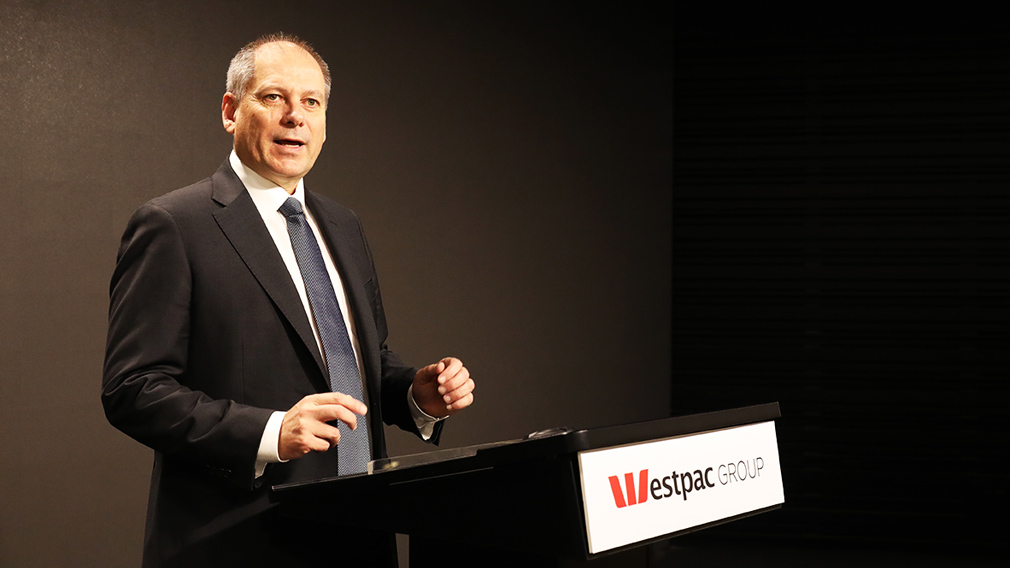Rowland: Capital sound, provisioning appropriate
Westpac CFO Michael Rowland discusses the bank’s full-year 2020 results. (Josh Wall)
Westpac chief financial officer Michael Rowland has assured the bank is well placed to support the economic recovery by keeping credit flowing due to “sound” capital levels and provisioning, as the economy continues to surprise to the upside relative to fears earlier in the year.
As the bank today reported a sharp drop in the number of customers on repayment deferral packages, Mr Rowland said while substantial provisions relating to COVID-19 were raised through the year to September 30, “in the last quarter, when we looked at our portfolio, we believed we're appropriately provisioned for the year”.
“That's why we didn't see much further credit impairment charge in the last quarter,” Mr Rowland told Westpac Wire.
“And when we sit here at the end of the financial year, when we look back, while GDP has been impacted significantly, while unemployment has grown a lot over the year, for all the reasons we know, it probably isn't as bad as we thought at the half.
“So, in a relative sense, we are pleased. But acknowledging that there has been significant broader economic deterioration of the year.”
At September 30, the bank’s expected credit loss provisions totalled $6.13 billion, down slightly from $6.34bn at the end of June amid the slightly improved economic backdrop. Westpac’s economists are forecasting year end GDP to contract 3.5 per cent in 2020, compared to forecasts of a 5 per cent contraction in March. Likewise, property prices are now tipped to slide 5.3 per cent in 2020, compared to earlier fears of a 15 per cent decline.
Mr Rowland, who joined Westpac as CFO in September, said low interest rates were providing key support to the property market, resulting in prices faring a” lot better…than we thought they would”.
Still, a sharp rise in impairment charges to $3.2bn took a toll on the bank’s bottom line for the year to September 30, cash earnings falling 62 per cent to $2.6bn. Meanwhile, return on equity came in at 3.83 per cent, or 7.69 per cent excluding notable items, while the bank’s net interest margin eased 4 basis points to 2.08 per cent.
Mr Rowland, however said the bank’s balance sheet was strong and that the Common Equity Tier 1 capital ratio of 11.13 per cent meant it could continue to support customers and lend.
“When I came into this role, stabilising and growing capital was one of my key priorities. And we're really pleased with the way we've ended up for the year (with a capital ratio of 11.13 percent),” he said.
“The way we think about that, is having a strong capital ratio allows us to support customers going forward, we’ll be able to lend to our customers, and we'll also be able to withstand any unexpected shocks.
“So while we believe we're well positioned with provisioning and the strength of our balance sheet for the shocks that we know, having a sound capital ratio just gives us that little bit more comfort that we've got the buffers in place to meet anything that's unexpected in the future.”
Mr Rowland added that tackling expense growth was a top priority and he would outline further details in full-year 2021.
“As we look to simplify the bank in terms of the businesses that we're in and the way we want to run ourselves, we know that we need to have a smaller cost base,” he said, after the bank reported a 6 per cent rise in expenses, excluding notable items.
“And so I've taken personal accountability to develop a cost reset plan that actually aligns the simplification agenda that we're driving more broadly at the bank to the cost base that we want for the future.”


